Among the specific new points in the draft Law on Teachers submitted to the National Assembly for its first comments, the issue of increasing treatment for teachers so that they can confidently stick with their profession is receiving attention and expectation.

Regulations on the rights and obligations of teachers, things that cannot be done in the direction of increasing protection for teachers; public teachers are special civil servants; giving proactive authority to the management agency of the education sector in recruiting, using, and managing teachers; fully regulating policies on salaries, allowances, and support for teachers; increasing treatment for teachers;... are specific new points in the draft Law on Teachers submitted to the National Assembly for the first comments.
In particular, the draft Law on Teachers has dedicated 1 chapter (Chapter V) to regulate salary and welfare policies for teachers (from Article 27 to Article 31).
Specifically, regarding salaries and allowances for teachers, Article 27 of the draft stipulates that teachers' salaries in public educational institutions are as follows: Teachers' salaries are ranked highest in the administrative career salary scale system; Professional incentives and other allowances depend on the nature of the job, by region according to the provisions of law. Teachers recruited and ranked for the first time are ranked 1 salary level higher in the administrative career salary scale system.
Regarding the policy to attract teachers, Article 29 of the draft stipulates that the beneficiaries of the attraction policy include: Highly qualified people, talented people, excellent graduates, young scientists, and people with special talents participating in recruitment as teachers. Teachers working in extremely difficult areas such as ethnic minorities, mountainous areas, coastal areas, and islands. Attraction policies include: Receiving allowances and incentives. Ensuring collective accommodation with sufficient essential conditions or renting public housing when working in rural areas, ethnic minority areas, mountainous areas, border areas, islands, and areas with extremely difficult socio-economic conditions. Support in training and development.
The above attraction policies are expected to help teachers feel secure in their profession, especially teachers in rural areas, ethnic minority areas, mountainous areas, border areas, islands and areas with especially difficult socio-economic conditions that current state policies have not yet met.
Experts say that the quality of an education system depends on a very important part, which is the quality of the teaching staff. The quality of teachers depends on many factors. In addition to individual efforts, the spirit of continuous learning of each teacher, policies, working environment, and methods of recruiting and developing teachers play an important role.
According to Professor, Dr. Nguyen Mau Banh, teachers' salaries are given the highest priority compared to the administrative salary scale system. If this becomes a reality, it would be wonderful. In the immediate future, in the context of many difficulties in our country, every small but meaningful concern will help teachers to be confident in their profession, to stick with the career of educating people that they have chosen with all their faith and love.
Sharing his views, delegate Tran Quoc Tuan, National Assembly Delegation of Tra Vinh province, expressed: The Draft Law on Teachers, expected to be submitted to the National Assembly for the first time at the 8th Session, is attracting great attention from the whole country, especially the teaching force. One of the important proposals is to stipulate that teachers' salaries are ranked highest in the administrative and career salary scale system, demonstrating the view that education is the "top national policy". This is considered appropriate to attract and retain good teachers, meeting the needs of sustainable education development in Vietnam. However, according to Mr. Tran Quoc Tuan, to ensure feasibility, the draft Law needs to stipulate a specific monitoring mechanism for these policies, avoiding the situation where regulations only exist on paper but cannot be implemented in practice. Regulations on teachers' salaries and allowances also need to be clearer and more specific, such as seniority allowances and regional allowances, to ensure fairness and efficiency in budget allocation.
Currently, 1.6 million teachers are working in educational institutions nationwide with a variety of levels, qualifications, and workplaces: from preschool to university, from primary training to postgraduate training; from favorable areas to areas with particularly difficult socio-economic conditions; from rural to urban areas, from deltas to islands and borders. If passed, the Draft Law on Teachers will be a consistent, effective and efficient legal framework for creating and developing the teaching staff and the education sector.
Source: https://daidoanket.vn/de-nha-giao-yen-tam-voi-nghe-10293787.html


![[UPDATE] April 30th parade rehearsal on Le Duan street in front of Independence Palace](https://vstatic.vietnam.vn/vietnam/resource/IMAGE/2025/4/18/8f2604c6bc5648d4b918bd6867d08396)
![[Photo] Prime Minister Pham Minh Chinh receives Mr. Jefferey Perlman, CEO of Warburg Pincus Group (USA)](https://vstatic.vietnam.vn/vietnam/resource/IMAGE/2025/4/18/c37781eeb50342f09d8fe6841db2426c)





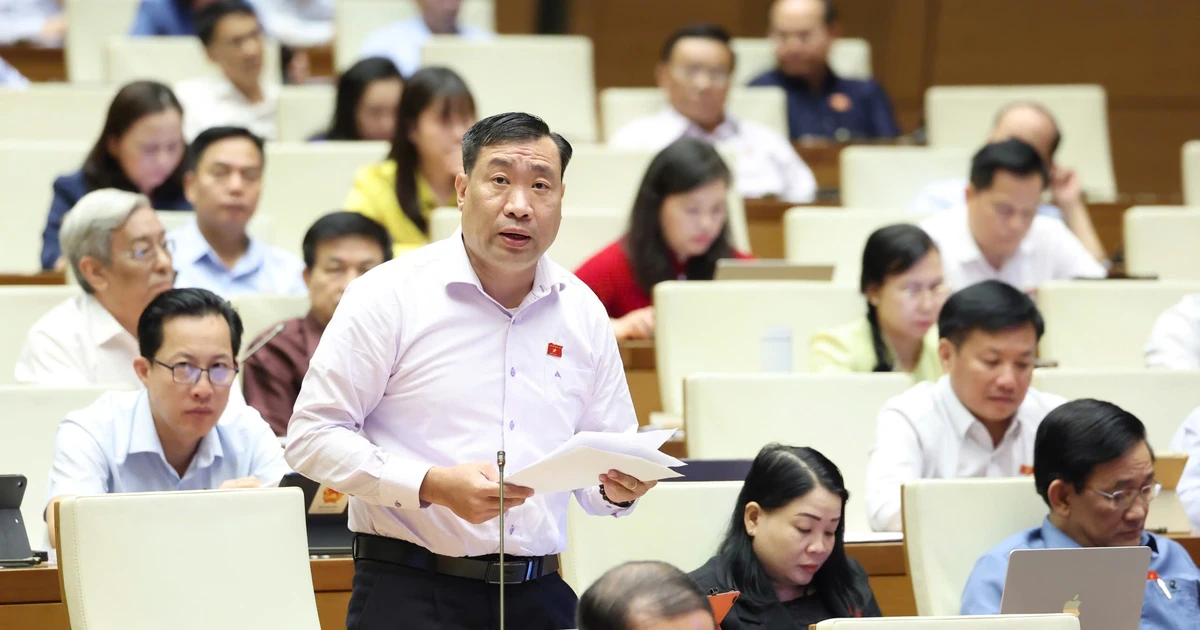



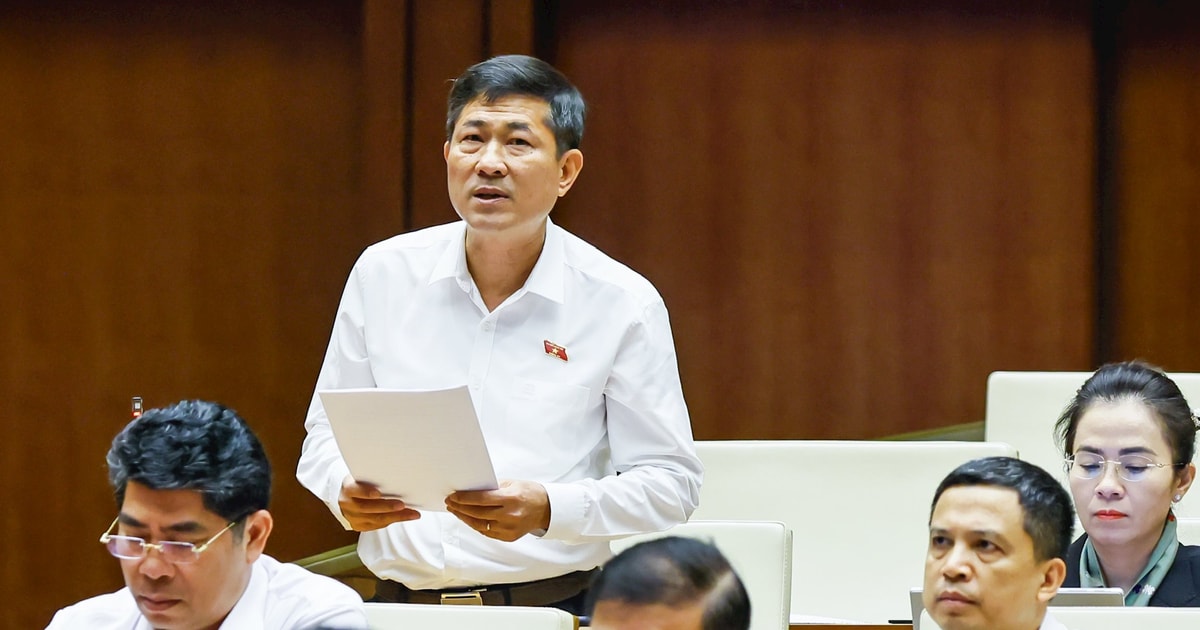
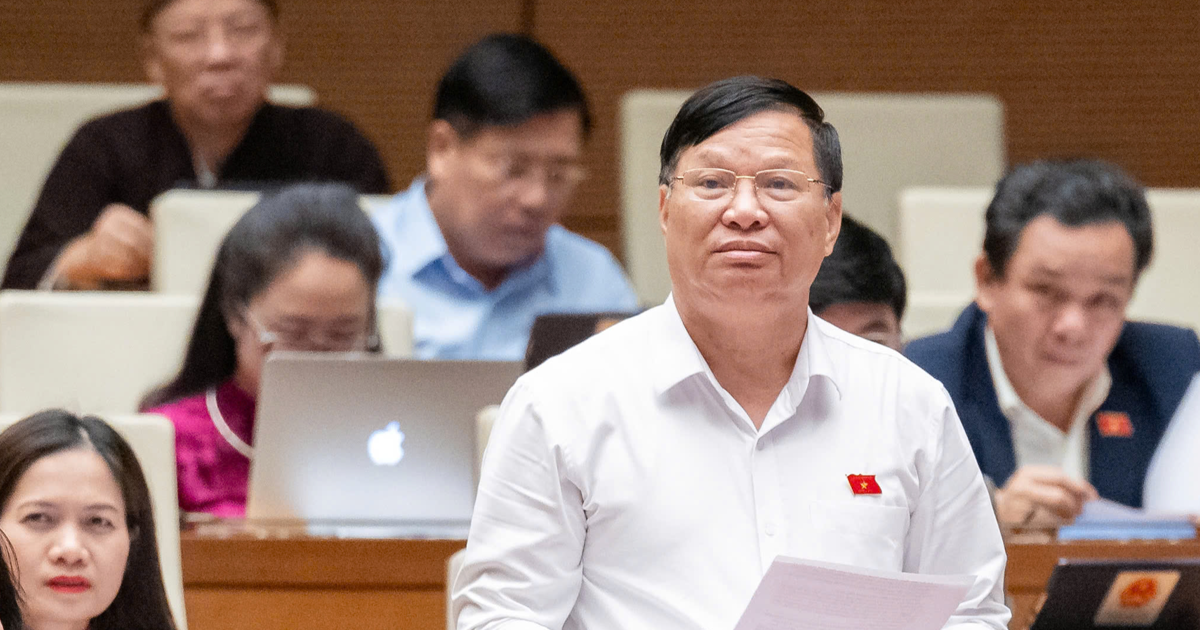
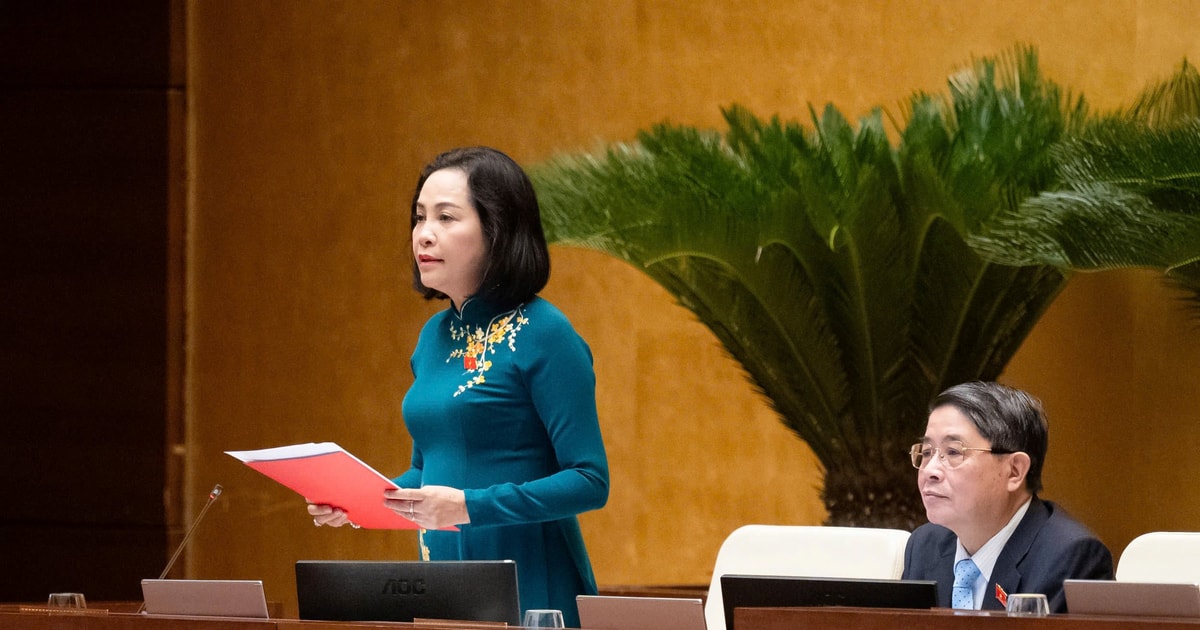



![[Infographic] Spreading the spirit of entrepreneurship and innovation among students](https://vstatic.vietnam.vn/vietnam/resource/IMAGE/2025/4/19/2a4ec5de73eb487eafd94afa7dfcbd73)








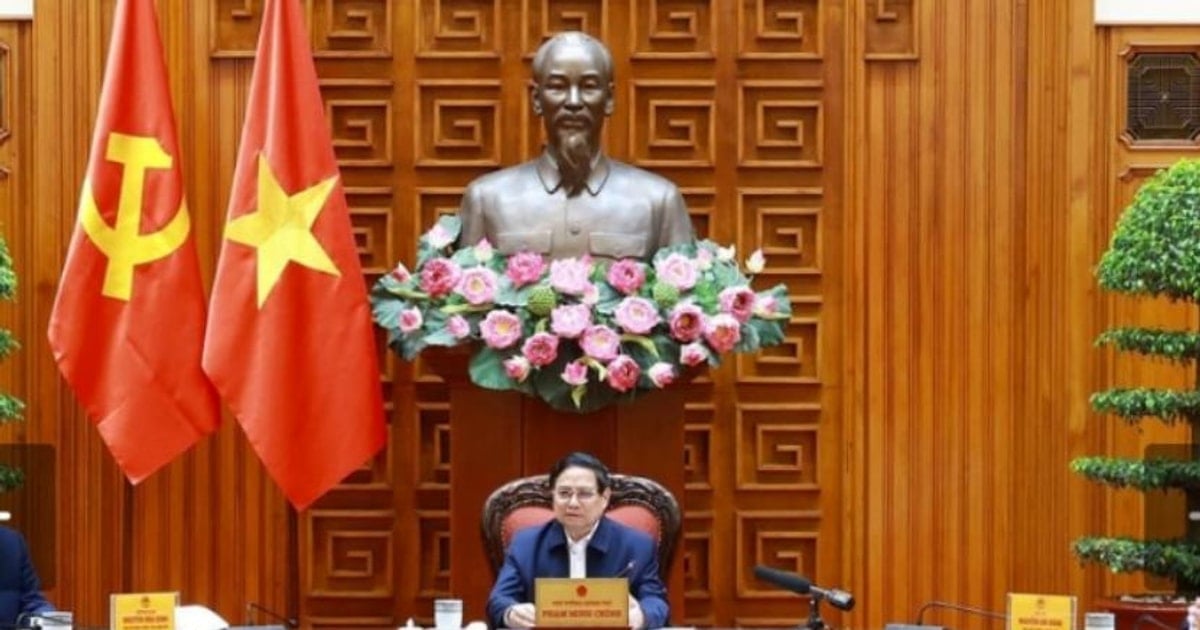



























































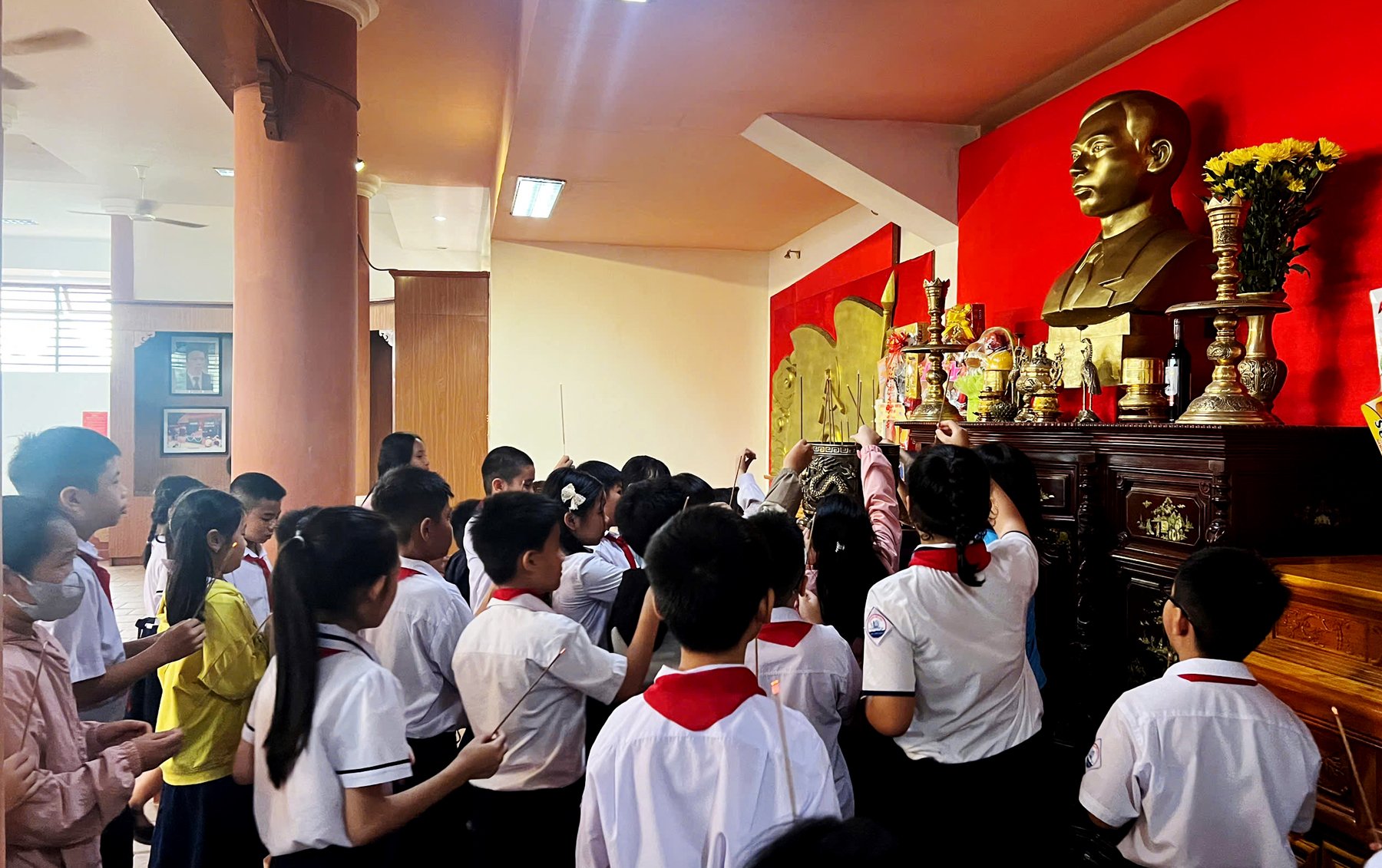













Comment (0)